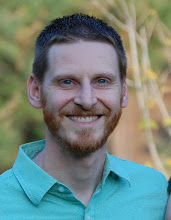C. S. Lewis always seems to have amazingly profound things to say and consummate skill in saying them--the two qualities that every good writer needs.
From Out of the Silent Planet, consider this speech by Weston (the interplanetary imperialist) and then Ransom's attempt to translate it for Malacandrian hearers. After reading the second version, how can the ideas of the first seem anything but ludicrous and hypocritical?
Weston: "To you I may seem a vulgar robber, but I bear on my shoulders the destiny of the human race. Your tribal life with its stone-age weapons and bee-hive huts, its primitive coracles and elementary social structure, has nothing to compare with our civilization--with our science, medicine and law, our armies, our architecture, our commerce, and our transport system which is rapidly annihilating space and time. Our right to supersede you is the right of the higher over the lower."
And the "translation" by Ransom: "Among us, Oyarsa, there is a kind of hnau [rational creature] who will take other hnau's food and--and things, when they are not looking. He says he is not an ordinary one of that kind. He says what he does now will make very different things happen to those of our people who are not yet born. He says that, among you, hnau of one kindred all live together and the hrossa have spears like those we used a very long time ago and your huts are small and round and your boats small and light and like our old ones, and you have only one ruler. He says it is different with us. He says we know much. There is a thing happens in our world when the body of a living creature feels pains and becomes weak, and he says we sometimes know how to stop it. He says we have many bent [bad] people and we kill them or shut them in huts and that we have people for settling quarrels between the bent hnau about their huts and mates and things. He says we have many ways for the hnau of one land to kill those of another and some are trained to do it. He says we build very big and strong huts of stones and other things--like the pfifltriggi. And he says we exchange many things among ourselves and can carry heavy weights very quickly a long way. Because of all this, he says it would not be the act of a bent hnau if our people killed all your people."
Tuesday, November 20, 2007
Out of the Silent Planet
Posted by
Jeff Moss
at
10:41 PM
![]()
Subscribe to:
Post Comments (Atom)

4 comments:
Yes, after all that he said, of course, the outcome would be that "it is ok for us to kill all of you". NOT! How bizarre!
I have recently become a driver. There are more and more _very_ nice cars in our city. When an expencive car and a cheap car get into an accident, the driver of the cheaper car is in much trouble. For one, because he has to refund the more expencive car (which is most likely always WAY beyond his resources). But secondly, the owner of the more expencive car gets to bully around the other owner. That is degrading and shoule be punished (but there is not mechanism for it).
On the contrary, regardless of the car, if it hits a human being (be it an important figure, an old babushka or a beggar off the street), the concequences are always gravely serious and of much grief.
There is a distinction between expencive cars and cheap cars. There is a biassed attitude towardss different types of people, but only until they get physically hurt or die. Than we are all equal (especially before God).
Marina, thanks for the comment. It's especially foolish for Christians to be biased toward the rich and powerful, considering that historically it's the poor and oppressed who have been most willing to become followers of Christ.
James 2:1-13.
I'm reading this book now! In preparation for, of course, our trip. I so enjoy Lewis's style.
I'm looking forward to That Hideous Strength.
Post a Comment